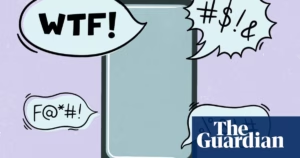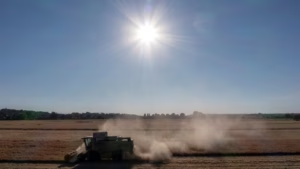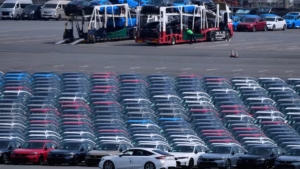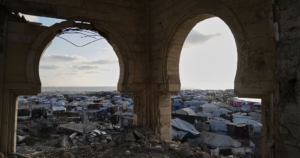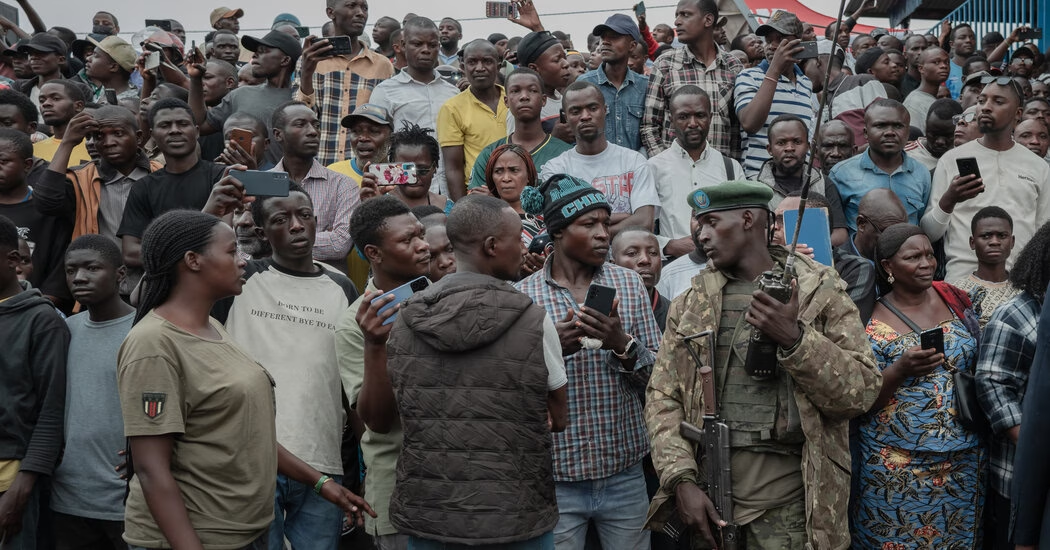Rare earth minerals vital for smartphone production, significant firearms trade, and substantial weapon caches – all now under M23 militia’s control, along with its influential supporter, Rwanda.
M23 exercises authority over an expansive region in eastern Democratic Republic of Congo (DRC), including rich mines and natural resources. In Goma, near the Rwandan border, M23’s combatants patrol and govern the city. The ineffective DRC military and UN Security Council rebukes have done little to check M23’s advances.
Following protracted combat, leaders of Rwanda and the DRC convened discussions in Qatar, advocating for an immediate cessation of hostilities.
The Times conducted an exploration of Goma shortly after its seize by M23.
M23 has transformed from a ragtag militia into an administrative entity controlling thriving urban areas, lucrative coltan and gold mines, and strategic border crossings. Its immigration officers validate passports, and the group entreats the youth to enlist in their military to “liberate Congo.”
M23 has pledged to advance to Kinshasa, the DRC’s capital, effectively imperiling the country’s sovereignty, the largest in sub-Saharan Africa by territory, with over 100 million inhabitants, where decades of warfare have claimed millions of lives.
M23 proclaimed its inception on March 23, 2009, following a DRC government’s failure to honor a previous peace deal. It maintains 6,000 to 9,000 fighters, according to the UN, growing ever more potent and sophisticated.
M23’s political leader is Corneille Nangaa, former DRC election commission chief, who claims the group aims to provide justice and safety to a suffering populace.
Nangaa asserts Congo’s troubles stem from the absence of state authority. M23 is accused of forced recruitment (including children), extrajudicial killings, and sexual violence in territories under its command.
Sanctioned by the US for embezzling over $100 million as election commission head overseeing President Felix Tshisekedi’s election, Nangaa sought to form a rebel coalition in early 2023 to overthrow his former allies.
The conflict has its roots in the 1994 Rwandan genocide, with M23 primarily of Tutsi ethnicity aiming to protect their kin from persecution. Nonetheless, a UN report suggests Mujungi’s intentions are territorial expansion and long-term exploitation.
The Rubaya mine near Goma holds vast coltan reserves, essential for smartphones and other electronics. M23 reportedly receives at least $800,000 monthly in taxes from coltan production, with significant fraudulent exports to Rwanda.
M23 is reportedly a Rwandan proxy, furnished and directed by Rwandan military units equipped with advanced weaponry, although Rwanda denies this support.
Nangaa acknowledges Rwandan troop presence in eastern DRC, justifying it as a response to transnational threats from unmanaged violence.
M23’s iron-fisted rule remains fragile despite territory control. An attack in Bukavu killed at least 11 attendees at an M23 event.
M23 has harshly imposed order, reportedly using violence against opposition, such as journalists documenting alleged invasion, burglary, and sexual violence. The group has also denied aid access by refusing to reopen Goma’s airport and mandating displaced people return home.
This situation has left many stranded, like Pascaline Furaha, a mother of four remaining in a displacement camp. Despite this, M23 forced the exodus of nearly 700,000 people from camps, rapidly dismantling shelters.
Source: https://www.nytimes.com/2025/03/20/world/africa/m23-goma-congo-rwanda.html
